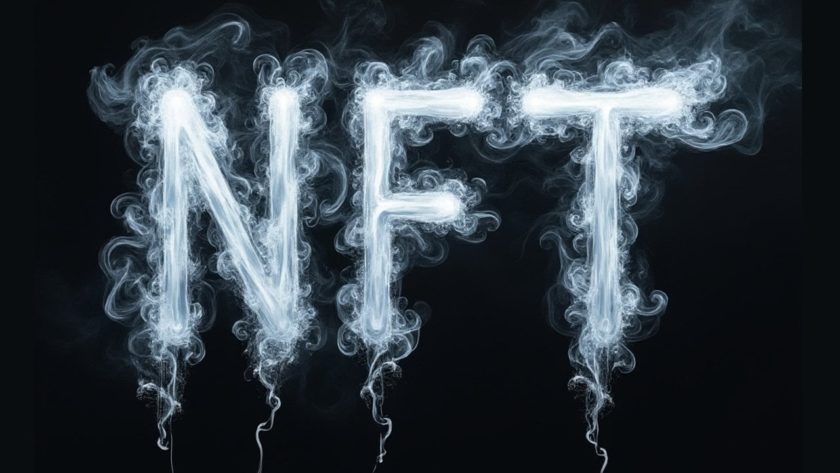There are more bitcoin “whales” than ever, and new data shows how they drive market movements. MassMutual is the latest legacy institution to buy into bitcoin. And the number of Ethereum developers is growing at a breathless pace.
Top shelf
Whales and krill
New data from OKEx and Kaiko suggests that bitcoin “whales” – the mega-wealthy crypto investors and, potentially, institutions – were selling at market highs as retail investors bought in. Trading data of the bitcoin/tether pair on OKEx’s platform between August and November showed that during the November bitcoin rally whales took profits and bought the dip, while smaller buyers continued purchasing as they did in September and October, despite higher prices in the oldest cryptocurrency, and panic sold around the Thanksgiving pullback. While the picture is likely more complicated, OKEx’s data shows how small buyers are faced with “swimming with the tide or against it,” by holding positions largely influenced by major buyers and sellers.
Mass buy
Massachusetts Mutual Life Insurance, a $235 billion insurance giant, purchased $100 million worth of bitcoin and invested $5 million in the crypto asset manager NYDIG. MassMutual told the Wall Street Journal it was a seeking “measured yet meaningful” stake in an increasingly digital world by taking on direct exposure to bitcoin. The life insurance company is the latest institutional stalwart to join bitcoin’s march into the financial mainstream, joining other publicly traded corporations and multi-billion dollar money managers in embracing bitcoin’s “macro” play.
Developer doozy
More than 300 new developers per month are coming into crypto to work on Ethereum, according to data compiled by venture firm Electric Capital. In its annual developer report, the VC found the number of coders entering the crypto space to develop blockchains and projects is increasing nearly across the board – though Ethereum is by far seeing the most action. Almost 2,300 average monthly developers worked on Ethereum across the third quarter of 2020, with Bitcoin in second at a bit under 400 (up 70% from three years ago).
Gone public
An Ethereum-based investment fund, from the Canadian money manager 3iQ, has gone public on the Toronto Stock Exchange (TSX). Some $76.5 million was raised in an initial public offering, which sold off two types of shares that offer exposure to ether, Ethereum’s native currency. In going public, the firm’s ether product marks a “world first,” according to a tweet by the fund manager on Thursday. 3iQ successfully launched a similar bitcoin fund earlier this year.
Corporate backers
Three major Chinese companies are taking part in the latest test of the nation’s central bank’s digital currency (CBDC) initiative. According to a local news source, winners in an ongoing currency lottery/pilot program in the city of Suzhou can now spend the “digital yuan” on Meituan’s bike-sharing platform, Didi’s taxi service and Bilibili’s video-sharing site. The latest giveaway on Dec. 12 reportedly sees 10,000 residents of the city apply for 200 digital yuan prizes. They can spend the CBDC at physical stores equipped with the appropriate point-of-sale technology, and now online via major Chinese companies. An earlier test occured in Shenzhen.
Quick bites
- BACK AGAIN: Banks in India are once again servicing cryptocurrency exchanges and traders. (CoinDesk)
- PUTIN EYES: Russian President Vladimir Putin has signed an order obliging public officials to report any cryptocurrency holdings. (CoinDesk)
- NYAG ORDER: New York Attorney General says Bitfinex, Tether could complete loan document handover in “weeks.” (CoinDesk)
- COOL $276K: Rapper Lil Yachty sells out his social token, $YACHTY, in 21 minutes and 41 seconds. (CoinDesk)
- ETHICAL STANDARDS: The World Economic Forum (WEF) is designing a global governance framework for the ethical data collection and sharing. (CoinDesk)
- STIGMA GONE? Wealthy are buying in. (Bloomberg)
- OFF EXCHANGES: Bitcoin continues to depart crypto exchanges. (Decrypt)
Market intel
Whale pack
The number of wallets holding at least 1,000 bitcoins now stands at a record high of 2,052, up 30% on the year, according to Chainalysis data. The so-called rich list, the number of individual addresses holding at least 1,000 coins, is also up over 7% to 2,270. The metric reached a record high of 2,274 on Nov. 24, according to data source Glassnode. “That’s a big increase in the wealthiest wallets and provides evidence that institutional investors have entered the market,” Chainlysis noted in its weekly market intel newsletter dated Dec. 10. That said, smaller holders have also increased: This year, wallets holding at least five BTC have increased by 8,842 (4%) to 234,408.
At stake
First, rights.
Ethereum developer Virgil Griffith stands accused of… what exactly?
Last year, Griffith, a 37-year-old American computer science doctorate, was arrested and detained for violating U.S. sanctions against North Korea, after he travelled to the nation to present on the decentralized, public blockchain Ethereum.
The Ethereum Foundation staffer and research scientist presented on how to utilize this open cryptocurrency network for local and international transfers, at the Pyongyang Blockchain and Cryptocurrency Conference. This information – essentially that ether is uncensorable – is decidedly in the public domain. He did not receive an honorarium for his presentation.
Now, Griffith’s attorneys are left wondering what the boy genius is accused of. In a new court filing the defense is requesting “particulars” about what services Griffith allegedly provided, who else was involved and how these services violated U.S. law. (He traveled to the nation even after his request for permission to do so from the State Department had been denied.)
“The defense should not be forced to use a decoder ring on over 6,800 pages of discovery – much of which has been heavily redacted by the government – to discern the basic information that should be present in every indictment: what crimes were actually alleged to have been committed, by whom, and where,” they write.
So what’s at stake? Only the civil liberties guaranteed and protected by the First Amendment to the United States Constitution.
The count against Griffith is conspiracy to violate the International Emergency Economic Powers Act, as well as some associated legal violations. Though prosecutors were shy of specifics. (The IEEPA provides broad executive powers to place economic sanctions on individuals, businesses, governments and other entities – thereby prohibiting U.S. persons and corporations from dealing with sanctioned nations.)
Notably, under the 1988 Berman Amendment, the IEEPA prohibits sanctioning the transfer of information or “informational materials.” That includes the type of speech freely available online. The question now is whether Griffith provided a service to the North Korean government, a point his defense has rebuked.
Even if it’s granted that Griffith traveled to a sanctioned nation – a big taboo – and broke defense mandates limiting the type of “services” or information one can provide to an adversarial nation – it’s likely the information Griffith presented on would not be sanctionable.
Griffith’s presentation was titled “Blockchain and Peace,” and according to the complaint it addressed “how a blockchain technology, including a ‘smart contract,’ could be used to benefit” North Korea.
As the FBI itself has said, it contained “basic concepts accessible on the internet.”
Who won #CryptoTwitter?






